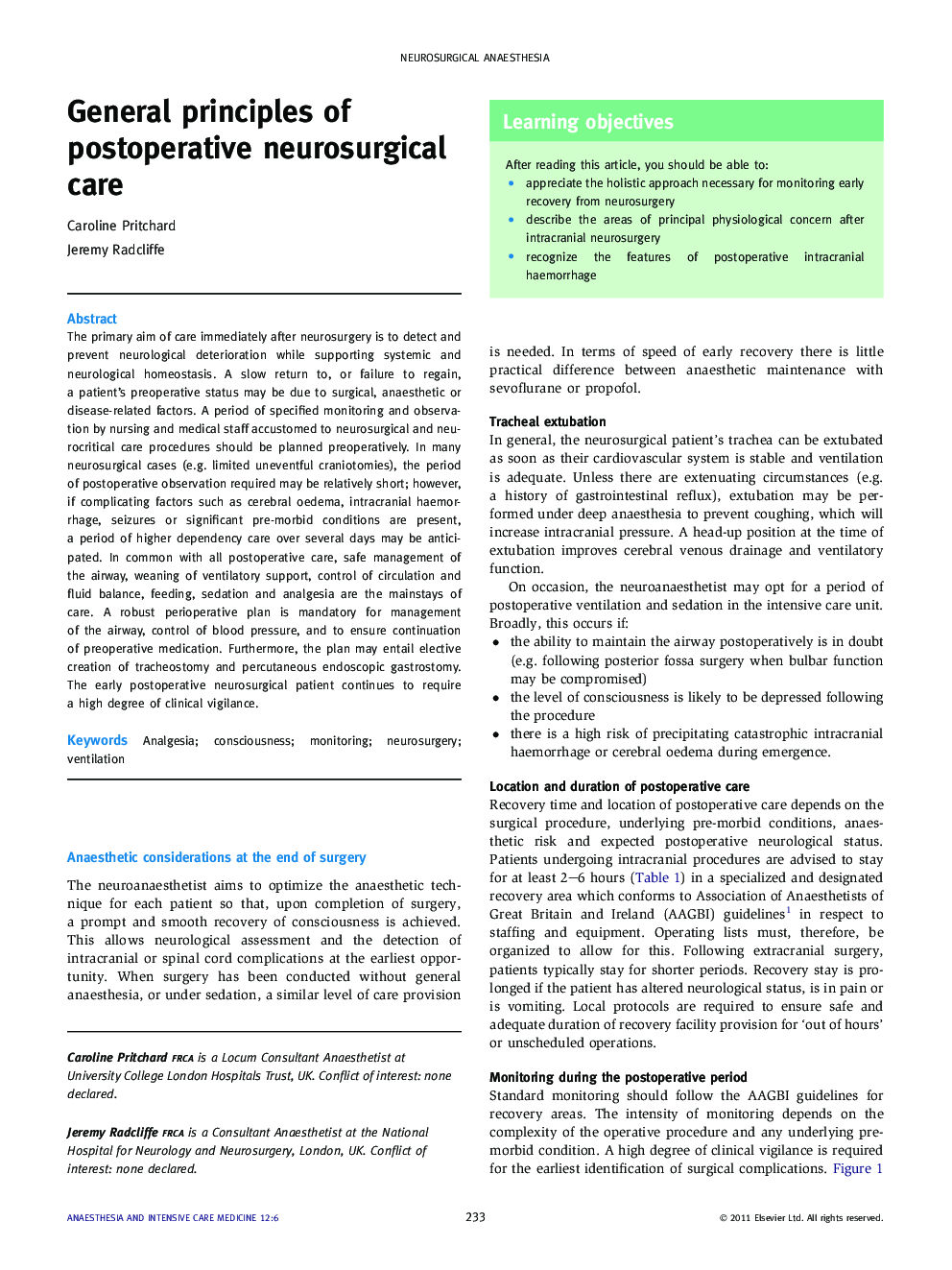| Article ID | Journal | Published Year | Pages | File Type |
|---|---|---|---|---|
| 2742665 | Anaesthesia & Intensive Care Medicine | 2011 | 7 Pages |
The primary aim of care immediately after neurosurgery is to detect and prevent neurological deterioration while supporting systemic and neurological homeostasis. A slow return to, or failure to regain, a patient's preoperative status may be due to surgical, anaesthetic or disease-related factors. A period of specified monitoring and observation by nursing and medical staff accustomed to neurosurgical and neurocritical care procedures should be planned preoperatively. In many neurosurgical cases (e.g. limited uneventful craniotomies), the period of postoperative observation required may be relatively short; however, if complicating factors such as cerebral oedema, intracranial haemorrhage, seizures or significant pre-morbid conditions are present, a period of higher dependency care over several days may be anticipated. In common with all postoperative care, safe management of the airway, weaning of ventilatory support, control of circulation and fluid balance, feeding, sedation and analgesia are the mainstays of care. A robust perioperative plan is mandatory for management of the airway, control of blood pressure, and to ensure continuation of preoperative medication. Furthermore, the plan may entail elective creation of tracheostomy and percutaneous endoscopic gastrostomy. The early postoperative neurosurgical patient continues to require a high degree of clinical vigilance.
